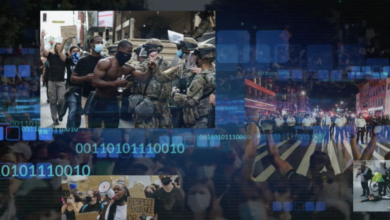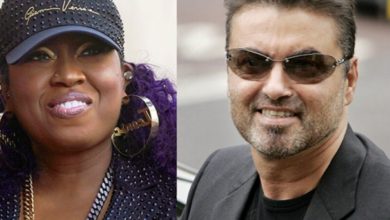

The University of Southern California is apologizing and plans to award honorary degrees to dozens of Japanese-American students, who were not able to complete their studies in the 1940s after being sent to internment camps during World War II.USC President Carol Folt is planning to issue the diplomas and deliver the apology at the school's Asian Pacific Alumni Association gala next April, 80 years after President Franklin D. Roosevelt signed Executive Order 9066 following the attack on Pearl Harbor. The order led to some 120,000 Japanese-Americans on the West Coast being forced to relocate to camps further inland."This is really a point of righting a historical wrong and doing the right thing at the end of the day," Patrick Auerbach, USC Associate Senior Vice President for Alumni Relations, told CNN.The university believes there were 121 Nisei students — a term for people born in America to parents, who came to the U.S. from Japan — at the institution on Feb. 19, 1942, when the order was issued.When the USC students tried to resume their education after the war, the school put up major obstacles.Some were not allowed to reenter the school, others would have to start their degree programs from scratch, and USC would not release transcripts for some students trying to finish their degrees at another school, he said.The school has not found records of a policy discriminating against the Nisei students, but they were able to corroborate the practice over the years through interviews with the students and their families.The Asian Pacific Alumni Association of USC has been working to get recognition for the students since 2007, Executive Director Grace Shiba told CNN.USC awarded honorary alumni certificates in 2007 and 11 surviving students were presented honorary degrees in 2012.The school does not award honorary degrees posthumously, so many of the students weren't honored then, Auerbach said, adding Folt has now decided to make an exception."This is an extraordinary circumstance, and this is an injustice, and we owe it to these families," he said. "If we want to really, you know, talk the talk with our values, our core values as an institution, then we need to walk the walk, and that's what we're doing in this case."Shiba said her office and some volunteers are working to find any surviving students — who would be in their 90s, or older — or their family members, to make sure they get the recognition they deserve.She said records of the day have been preserved on microfiche and they have set up a form for people to request the honorary degree.Shiba said she's been in touch with many families since the announcement."They're thrilled, the reaction has been positive," Shiba said. "We waited so long, and to be quite honest, we were just thrilled that finally, the university had come to a decision to honor all Nisei students."The Japanese American National Museum also welcomed the decision."This gesture by USC to grant honorary degrees posthumously recognizes the deep pain and hardship suffered by those students. It is an important step in addressing a grave injustice." museum President and CEO Ann Burroughs said in a statement. "It is a sad legacy of wartime racism that some families may still not know that their deceased relatives once attended USC, and that they are now eligible to receive this belated honor."Auerbach said the university hopes it will provide closure for the Nisei students' families."We cannot go back and change what the university did, but this is the least we can do to make right by some, some injustice is that we're done by the institution," he said.
The University of Southern California is apologizing and plans to award honorary degrees to dozens of Japanese-American students, who were not able to complete their studies in the 1940s after being sent to internment camps during World War II.
USC President Carol Folt is planning to issue the diplomas and deliver the apology at the school's Asian Pacific Alumni Association gala next April, 80 years after President Franklin D. Roosevelt signed Executive Order 9066 following the attack on Pearl Harbor. The order led to some 120,000 Japanese-Americans on the West Coast being forced to relocate to camps further inland.
"This is really a point of righting a historical wrong and doing the right thing at the end of the day," Patrick Auerbach, USC Associate Senior Vice President for Alumni Relations, told CNN.
The university believes there were 121 Nisei students — a term for people born in America to parents, who came to the U.S. from Japan — at the institution on Feb. 19, 1942, when the order was issued.
When the USC students tried to resume their education after the war, the school put up major obstacles.
Some were not allowed to reenter the school, others would have to start their degree programs from scratch, and USC would not release transcripts for some students trying to finish their degrees at another school, he said.
The school has not found records of a policy discriminating against the Nisei students, but they were able to corroborate the practice over the years through interviews with the students and their families.
The Asian Pacific Alumni Association of USC has been working to get recognition for the students since 2007, Executive Director Grace Shiba told CNN.
USC awarded honorary alumni certificates in 2007 and 11 surviving students were presented honorary degrees in 2012.
The school does not award honorary degrees posthumously, so many of the students weren't honored then, Auerbach said, adding Folt has now decided to make an exception.
"This is an extraordinary circumstance, and this is an injustice, and we owe it to these families," he said. "If we want to really, you know, talk the talk with our values, our core values as an institution, then we need to walk the walk, and that's what we're doing in this case."
Shiba said her office and some volunteers are working to find any surviving students — who would be in their 90s, or older — or their family members, to make sure they get the recognition they deserve.
She said records of the day have been preserved on microfiche and they have set up a form for people to request the honorary degree.
Shiba said she's been in touch with many families since the announcement.
"They're thrilled, the reaction has been positive," Shiba said. "We waited so long, and to be quite honest, we were just thrilled that finally, the university had come to a decision to honor all Nisei students."
The Japanese American National Museum also welcomed the decision.
"This gesture by USC to grant honorary degrees posthumously recognizes the deep pain and hardship suffered by those students. It is an important step in addressing a grave injustice." museum President and CEO Ann Burroughs said in a statement. "It is a sad legacy of wartime racism that some families may still not know that their deceased relatives once attended USC, and that they are now eligible to receive this belated honor."
Auerbach said the university hopes it will provide closure for the Nisei students' families.
"We cannot go back and change what the university did, but this is the least we can do to make right by some, some injustice is that we're done by the institution," he said.
Source link









